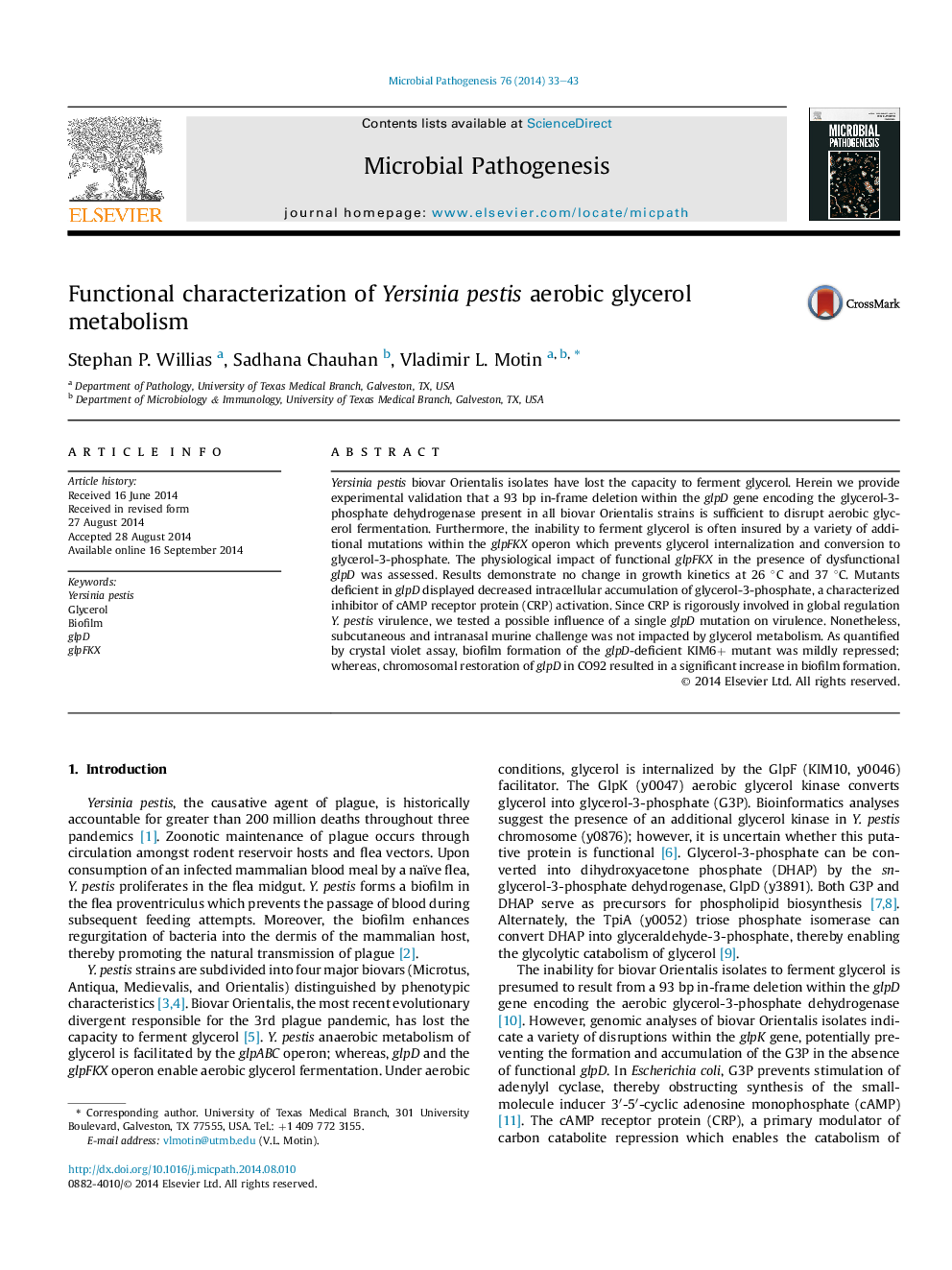| Article ID | Journal | Published Year | Pages | File Type |
|---|---|---|---|---|
| 6136265 | Microbial Pathogenesis | 2014 | 11 Pages |
Abstract
Yersinia pestis biovar Orientalis isolates have lost the capacity to ferment glycerol. Herein we provide experimental validation that a 93 bp in-frame deletion within the glpD gene encoding the glycerol-3-phosphate dehydrogenase present in all biovar Orientalis strains is sufficient to disrupt aerobic glycerol fermentation. Furthermore, the inability to ferment glycerol is often insured by a variety of additional mutations within the glpFKX operon which prevents glycerol internalization and conversion to glycerol-3-phosphate. The physiological impact of functional glpFKX in the presence of dysfunctional glpD was assessed. Results demonstrate no change in growth kinetics at 26 °C and 37 °C. Mutants deficient in glpD displayed decreased intracellular accumulation of glycerol-3-phosphate, a characterized inhibitor of cAMP receptor protein (CRP) activation. Since CRP is rigorously involved in global regulation Y. pestis virulence, we tested a possible influence of a single glpD mutation on virulence. Nonetheless, subcutaneous and intranasal murine challenge was not impacted by glycerol metabolism. As quantified by crystal violet assay, biofilm formation of the glpD-deficient KIM6+ mutant was mildly repressed; whereas, chromosomal restoration of glpD in CO92 resulted in a significant increase in biofilm formation.
Keywords
Related Topics
Life Sciences
Immunology and Microbiology
Microbiology
Authors
Stephan P. Willias, Sadhana Chauhan, Vladimir L. Motin,
